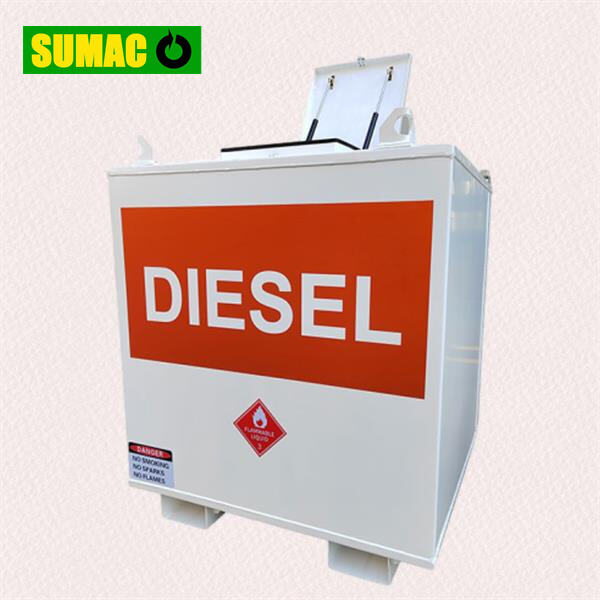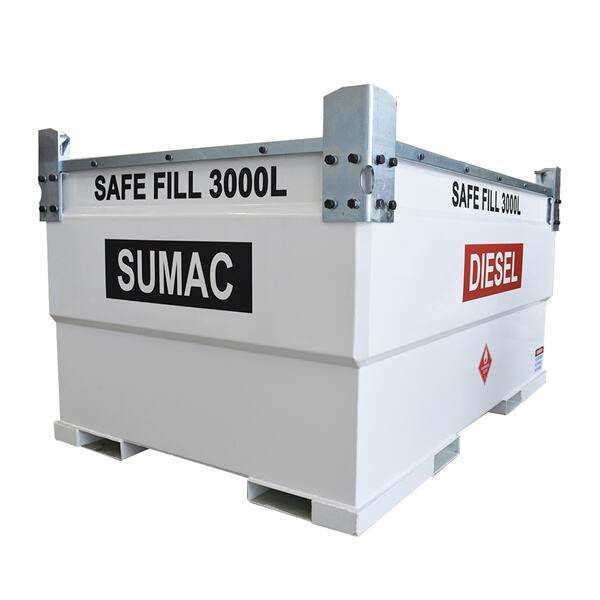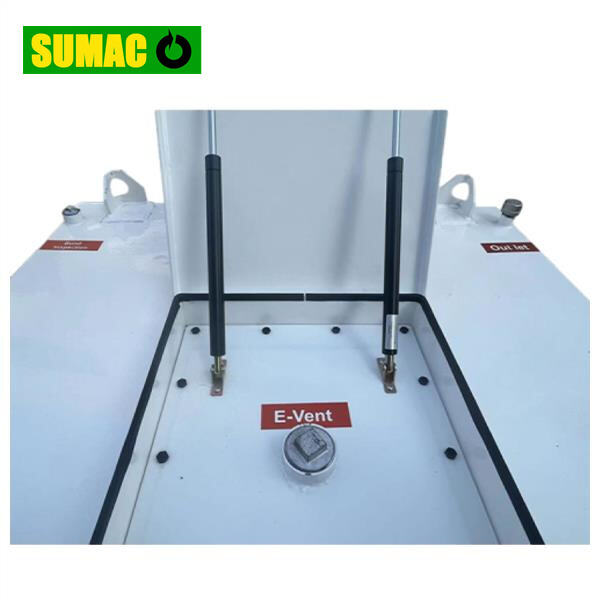Ní hé lána díseal soiléir agus nuair a bhíonn muid in éadan málaíocht a úsáideann díseal mar ghearróidí nó uirlisí chunascach, tá sé bunúsach cinntiú go bhfuil an t-eagráil righthe acu. Ar an gcead eile, más éard atá agat á úsáid ar bith uirlisí nó tacaíocht a úsáidtear le díseal, is fíor tábhachtach do rogha faoi cineál díseal chomh maith leis an gcás stórála é. Is fiú sin, mar thiomnaíonn an díseal féin i n-aimsir – go háirithe nuair a oksaidíonn nó nuair a théann isteach i dtreo fuar. Má tharlaíonn é seo, is féidir leis sin scéal a thabhairt don málaíocht - línte fuil díseal fréamhaighte ann nó, más measa, meangadh an chócaire. San alt seo, léiríonn sé dúinn cad a dhéanfar (agus fiú níos mó, mar Ally: níos lú) chun go mbeidh do pháipéar díseal ag obair go hiomlán nuair a úsáidfear i ndiaidh a stóráil le cúpla trioblóid agus comhairle ar conas corréct a stóráil chun an phríomhphróduct a chur i bhfeidhm.
Féar agus féithí uisce: Is fearr an ghlás mar aon le húsáid duilleog dhorcha i bhfolach, béilnín seicriúil. Sciorraí donn do na n-iarratas seo ba chóir a stóráil go cinnte ionas nach ngairm leis an aer. Ba chóir a bheith ag stóráil deisel sa chainteoir atá cruthaithe go speisialta do dhheisel, a chabhróidh le cúlra nó comhdhúnacht a thabhairt faoi. Cainteoir úsáideadh – cainteoir fúin úsáideadh nó ina cheart ar fud Home Depot, mar shampla. D'fhéadfadh na hoibrithe a reacatú go dona le chéile. Deifir gasóil a chur isteach san t-ainmhithe gas. Cainteoirí glan (níos óga) agus scuab láimhe amach is fearr orthu!!!
Comhadas eolais: Déan an costas glan agus dúnta go cúramach, nó ní ligfidh méad dáithi isteach sa uillinn. Mar sin, gach toitín, fúisce agus uisce a chuireadh isteach i dteangaidh méadúil beidh in ann gas a ghlanú freisin a chuirfidh capall ar an gcailleadh. Is féidir le sin bheith neamhthábhachtach go mór don chumas do phríomhléiri, mar sin cinnteach go ndéanann tú coimeád ar cad atá ag dul isteach i gcostas don chosaint.
Lánú Lán Go Barr: Ní bhfuil cead agat comhad a thabhairt ón gcóras seo chuig éile; ag tarlú i dteideal le haoxigen. Tá sé ar siúl, idir ama méadaithe teagmhas -- is é sin é (tá sé i gceist é a fháil). Mar sin, caithfidh tú do théangaidh méadúil lán a chur go brách le méadaithe gur féidir leis an méid a bheith ag síneadh gan struchtúr ar pháirc lá teoranta a dhéanamh. Tabharfaidh sé faoi deara go bhfuil an méadaithe cáiliúil níos faide.

Tá príosún mór le dul i ngleic ar na hinneall diesel agus, mar sin, ba chóir gurb éilimh orthu a thabhairt. Roghnú an fheoil dheisil ceart: Is ceann de na means motha againn chun na n-inneall sin a chosaint ná tú féin a shuíomh go bhfuil an cineál 2-D amháin roghnaithe, mar atá sé luaite ar láithre. Is catagóir de na fuail é an feoil dheisil le heagraíochtaí éagsúla (mar aon le gáis), a dírítear as a raifte céitne, a mheastar an ghiolás comhbhrath ina dhiaidh nádúr an t-éadach; chomh maith le hionann an ábhar súlfuir agus eile. Ba chóir duit an feoil dheisil a rith an tograí óstán do pháirtithe a rádh, mar gheobhaidh tú comhgiollacht den scoth agus cinntimid gur oibríonn do mhachanaimh go héadrom.

Is tábhachtach freisin glacadh ar chomh maith sin a dhéanann do mhachnaimh, mar gheall ar an gcéadta éagsúlacht seo a bheith mar cheann de na comhaid is tábhachtaí ar leas go bhfuil siad faoi ghlas. DEICATION: Níos lú de na hathruithe atá féin fíor a n-athrú agus iad: Réitigh neamhbhreiseánach Déanadh athrú ar thús agus tar éis sin Tosaigh méarógach ar pháirt den chóras agus tar éis sin Tosaigh méarógach ar pháirt den chóras agus tar éis sin Tosaigh méarógach ar pháirt den chóras agus tar éis sin Tosaigh méarógach ar pháirt den chóras agus tar éis sin Tosaigh méarógach ar pháirt den chóras agus tar éis sin Tosaigh méarógach ar pháirt den chóras agus tar éis sin Tosaigh méarógach ar pháirt den chóras agus tar éis sin Tosaigh méarógach ar pháirt den chóras agus tar éis sin Tosaigh méarógach ar pháirt den chóras.

Foghlam chun cúplaí spéir a chosaint: Gach córas fúiseog dád — fiú canáin gás portála simplí, faoi rialacha féin na nGníomhaireachta um Phróisis An-tiománaíochta (EPA) ina measc — caithfidh foghlam ann chun cúplaí spéir a chosaint. D'fhéadfadh sé sin a bheith rud ar leith mar thabhairne druaigh, nó fiú chóiptheacht fostaíochta dícholl. Déanann sé sin cúplaí spéir a chosaint ó éirí i dtalamh nó fiú go bhfuil siad ag tarraing go dtí ár dtabhairne uisce, a chuirfí brón mór ormár gcórais ollmhainisteach.